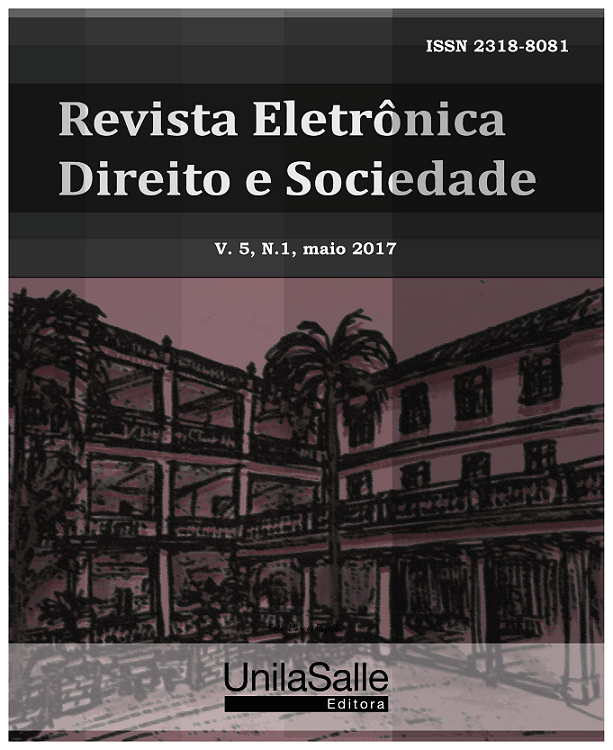Access to justice and evolution of the legal system: the preliminary hearing (art. 331, CPC/1973) and the conciliation hearing (art. 334, NCPC/2015).
DOI:
https://doi.org/10.18316/redes.v5i1.3769Keywords:
Acesso à justiça, Audiência de conciliação, Audiência preliminar, Evolução.Abstract
O presente trabalho aborda as dificuldades que o direito tem tido para garantir o acesso à justiça em uma sociedade hipercomplexa, já que os contextos sociais se modificam, assim como o número de processos tramitando no Poder Judiciário aumenta. Diante desta realidade, as transformações exigem que o direito evolua, para que possa exercer a sua função diferenciada dentro da sociedade. Porém, embora existam estímulos à evolução do sistema jurídico, como, por exemplo, através de inovações legislativas, suspeita-se que há uma resistência dos atores jurídicos em aceitarem estas inovações, em especial dos magistrados, o que se constatou na análise de julgados acerca da aplicabilidade da audiência preliminar do STJ, TJRS, TJSP e TJRJ, onde 61,36% das decisões não utilizaram o instituto ou não fundamentaram devidamente a sua dispensa, embora contrariasse a disposição do texto legal (art. 331, §3º, do CPC/1973). A audiência preliminar foi escolhida para ser pesquisada por ser representativa do acesso à justiça, tornando o julgador mais próximo do jurisdicionado. Dessa forma, o problema que a dissertação aborda é “Como ocorreu a aplicabilidade da audiência preliminar pelos órgãos do Poder Judiciário de segundo grau e pelo Superior Tribunal de Justiça?”. A pesquisa foi realizada através de levantamento bibliográfico e análise de decisões judiciais. O referencial teórico é a teoria da evolução defendida por Niklas Luhmann, sendo feito um recorte da teoria do jus-sociólogo para a melhor compreensão da pesquisa efetuada. Foi analisado como não foi possível a evolução do sistema jurídico através da introdução da audiência preliminar no processo civil, por meio dos mecanismos evolutivos variação, seleção e estabilização. Foram estudados também novos estímulos à evolução do sistema jurídico, através de inovações legislativas, como a introdução da audiência de conciliação e/ou sessão de mediação no NCPC/2015. Por fim, foi analisado como o conceito de resiliência jurídica pode ser útil à evolução do direito, em tempos complexos e inovadores.
Downloads
Published
Issue
Section
License
Authors who submit their manuscripts for publication in the “REDES” Magazine agree to the following terms:
The authors claim to be aware that they retain copyright by giving “REDES” the right to publish.
The authors declare to be aware that the work submitted will be licensed under the Creative Commons Non-Commercial Attribution License which allows article sharing with acknowledgment of authorship and publication in this journal.
The authors declare to be aware that by virtue of the articles published in this journal have free public access.
The authors declare, under the penalty of the law, that the text is unpublished and original and that they are aware that plagiarism has been identified, plagiarized authors will be informed - willingly, to take legal action in the civil and criminal sphere - and, plagiarists will have their access to the magazine blocked.
The authors state that - in case of co-authoring - all contributed significantly to the research.
Authors are obliged to provide retractions and (or) corrections of errors in case of detection.
The authors are obliged not to publish the text submitted to “REDES” in another electronic journal (or not).
The Electronic Journal Law and Society - REDES - is licensed under a Creative Commons License. Attribution-NonCommercial 4.0 International.Based on work available at "http://revistas.unilasalle.edu.br/index.php/redes/about/submissions#copyrightNotice".
Permissions in addition to those granted under this license may be available at http://creativecommons.org/.

